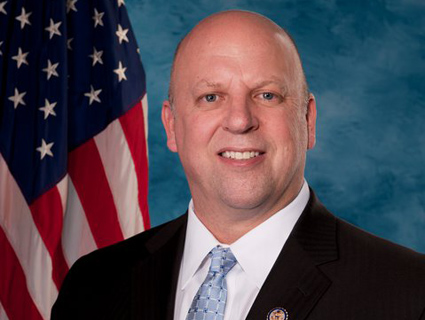
Courtesy Cresent Hardy for Congress
Cresent Hardy was expected to be the milquetoast candidate in the Republican primary for Nevada’s 4th district—especially compared with his competitor for the GOP nod, Niger Innis, who said that the fight to open the Arctic National Wildlife Refuge for drilling was “very much like the civil rights revolution.”
But on Tuesday, Hardy, a Nevada state assemblyman, gave Ennis a run for his money. In an interview with the Las Vegas Sun, Hardy called the Employment Nondiscrimination Act, a federal bill passed by the Senate that prohibits employers from discriminating against workers on the basis of their sexual orientation or gender identity, “segregation.”
“When we create classes, we create that same separation that we’re trying to unfold somehow,” Hardy told the Sun. “By continuing to create these laws that are what I call segregation laws, it puts one class of a person over another. We are creating classes of people through these laws.”
In the same interview, Hardy vowed that he “will always vote against same sex marriage because of my religious beliefs, the way I was raised…For me to vote for it would be to deny the same God that I believe in.”
As a state assemblyman, Hardy was one of just 13 assembly members to vote against a Nevada bill banning housing and job discrimination against transgender people. Republican Governor Brian Sandoval signed that bill into law in May 2011.
Hardy and Innis are competing to challenge first-term Democratic Rep. Steven Horsford. The sprawling 4th district, which covers northern Las Vegas suburbs, leans Democrat, although Horsford was elected in 2012 with a scant 50.1 percent of the vote. While Innis is running as an outsider, Hardy is squarely backed by the Republican establishment, having racked up endorsements from Sandoval, Sen. Dean Heller, and Rep. Mark Amodei.













